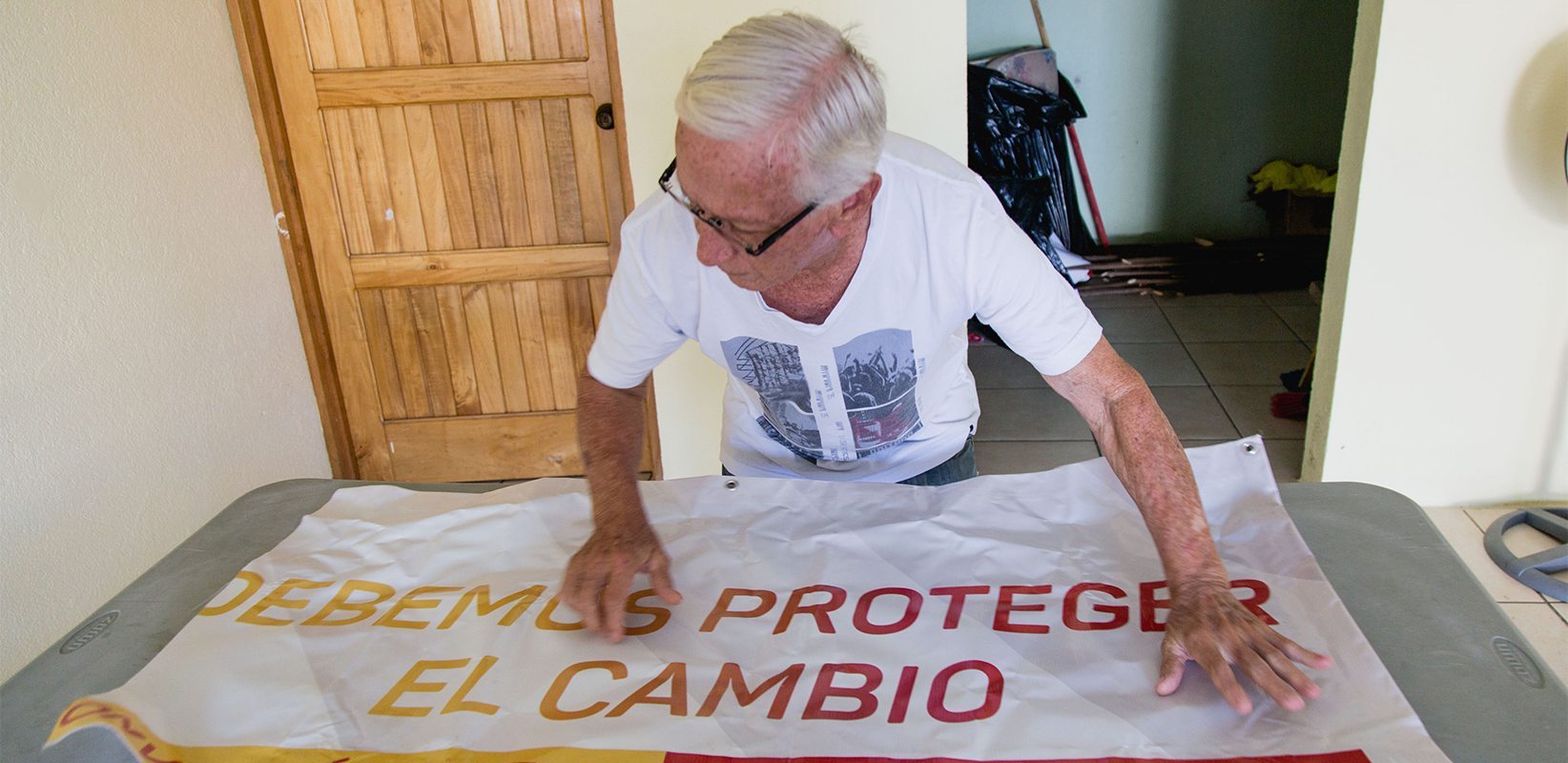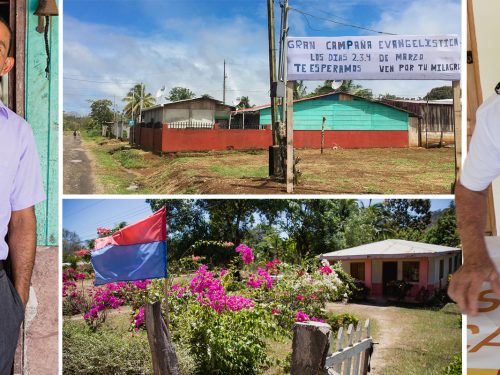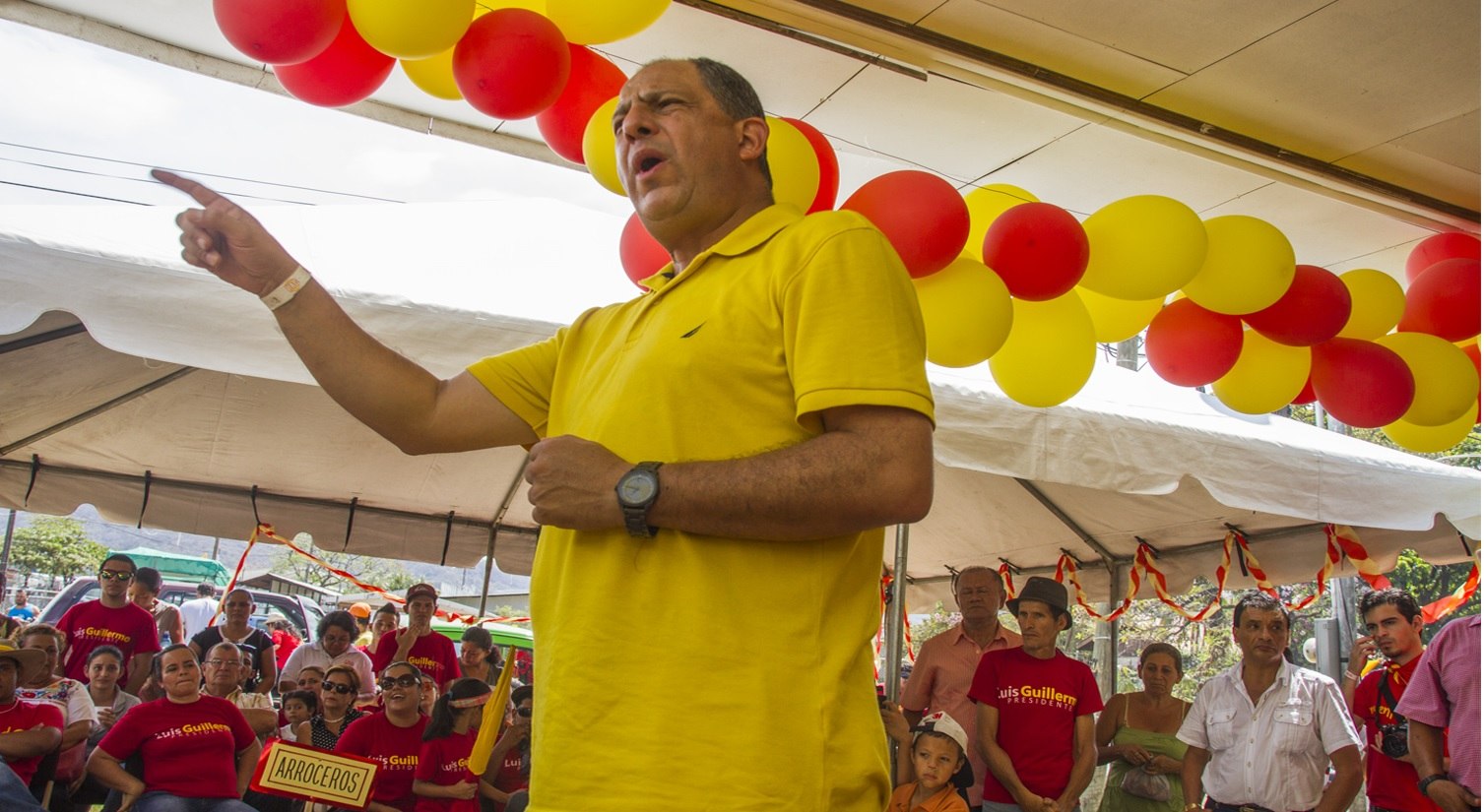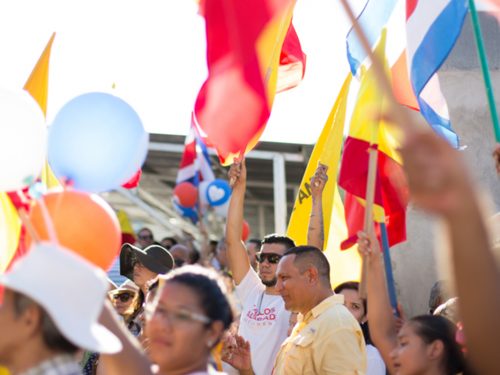

Kenneth Paniagua voted for the first time on February 4 at 6am in Carmona de Nandayure. “I didn’t read all the government plans, but I watched the debates and I informed myself through social media,” the 18-year-old tells me on the phone.
Without hesitation, he tells me that he voted for the PAC (Citizens’ Action Party). “Starting with human rights. That wasn’t the only thing, but it was important. The economy and their proposals on infrastructure too,” says the youngster, who studied at the Liberia scientific high school and is now in college at TEC in Cartago.
It’s accurate to say that this isn’t the most common scene in Guanacaste. In fact, the district where Kenneth lives is the only one that PAC won with 23.26 percent of the votes to 17.03 percent for PRN (National Restauration Party). It’s also one of the few where voter turnout was higher than 68 percent.
His is part of the diverse faces that, in a sparse crowd and without scandal, went to the voting booth on February 4 to cast his vote and, in the case of Kenneth and the another 200 voters in Carmona, cast it for PAC.
His father, Breitner Paniagua, says that his son made up his mind quicker than he did. “When we were in the car on our way to Cartago, he and two friends said they were voting for the same party. It seems that the discourse that PAC used resonated with the younger generations.”
A Subtle Victory
When we look at the most recent numbers from the Supreme Elections Court from February 5, we confirm what we already knew: As you get further away from the center of the country, support for Fabricio Alvarado grew, as did abstention. Guanacaste wasn’t the exception. In fact, many traditionally green and white cantons (for the National Liberation Party) completely flipped and supported the evangelical Alvarado. Among them, Nandayure.
This is why Carmona seemed interesting to us. What made this district turnout more at the voting booth and vote slightly more for the progressive candidate, Carlos Alvarado?
“Well, girl, there aren’t as many evangelical churches here,” a PAC sympathizer tells me. And it’s true. In Carmona there are only two evangelical churches. Oasis de Esperanza (Oasis of Hope) is one of them.
According to all those interviewed, this continues to be a very catholic town, although participation has diminished. “While it may be for the wrong reason, it could be something that had an influence,” Kenneth Paniagua reasons.
Electoral Hypothermia
If you walk around Carmona, you won’t find PAC flags at every home, nor on cars or hung from trees. Even the party itself has admitted that its voters are silent.
In general, this election saw less action that elections of years prior. “Colder” is the word used by many citizens of one of the districts with the highest turnout in Guanacaste. Police, red cross workers, people sitting in the park looking for shade under a tree…among them apathy and disillusionment is present. “What for, if it’s just more of the same?,” one of them says.
“No party took me to vote, so I my daughter had to,” says Juan Vega, remembering that in previous years parties worked a lot harder to get people out to the voting booth.
Once more, many PAC voters aren’t out in the streets taking people to vote nor showing off their decision with pride.
So, where are they? On the second floor above a PAC campaign house sits Mr. Genaro, a 76-year-old man that hung a red and yellow flag on his balcony. “I quit voting for years until this guy came around, Ottón Solís [PACs founder],” he says.
Here in his house we also met with the electoral chief for the canton, Etilma Cambronero. “There were a lot of active young people. A group of young people were the ones who launched PAC here in Nandayure in the previous campaign and I got involved through them,” she explains.
“We passed out flyers with expliantions about the government plan,” she continues.
For her campaign partner Julio César Madrigal, the party leadership also gave good signs. “Mr. Carlos came here four times,” he says enthusiastically, but with a tone of uncertainty because both he and Etilma agree that the task in other districts outside of Carmona is difficult.
“Just in San Pablo alone there are six evangelical churches,” Julio César says, referring to a district where 45 percent of the people who voted, did it for Fabricio Alvarado.
There, in those districts that are difficult to access, is where they face the hardest task ahead of the second round. “In the first round we didn’t have enough time. Now we are well organized,” Etilma says, after assuring that Carlos Alvarado will be the next president of the country.







Comments